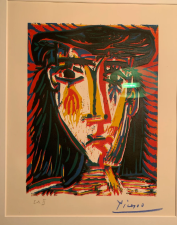What Makes a Literary Work Win an International Prize?
"Reading is a psychological process of deriving meaning from printed or written language."
"Reading is a psychological process of deriving meaning from printed or written language."
Through reading, human experience continues from ancient times to today and tomorrow, from the bustling cities to the remotest countryside.
The World Literature Prize and its winning works possess a certain cross-cultural influence. These awards are professional and directional, and emphasize cross-cultural and cross-industry dissemination driven by media, enabling readers from diverse cultural circles around the world to access, understand, experience, and share the winning works and the cultural connotations they carry.

The prerequisites for winning the Nobel Prize in Literature primarily include the following:
- Publicly published works:
--There must be publicly published works that demonstrate the author's unique perspective, profound thought, and exceptional linguistic skills.
--The public publication of works signifies that they have been examined by readers and the test of time, possessing broad social influence and literary value.
- Continuous creative activity:
--Continuous creative activity is a crucial factor in winning the Nobel Prize in Literature.
--Writers cannot remain in a state of creative stagnation for long periods of time. Maintaining a writing habit and continuously exploring and creating is crucial for improving the quality of their work and maintaining artistic inspiration.
- Nomination:
--Nomination is a crucial step in winning the Nobel Prize in Literature.
--Nominators typically include prominent figures in the literary community, university professors and researchers, and past Nobel laureates. Their nomination is a recognition of the author's work and an official acknowledgement of their artistic achievements.
- The jury's favor:
--Whether a work receives the jury's favor is a complex and unpredictable factor in determining whether or not it will win the prize.
--Jury members have different understandings of literature, preferences, and historical contexts. Their decisions are influenced by many factors, including the work's literary value, cultural influence, and contribution to society.
--Therefore, authors need to continuously improve the quality of their work, demonstrate a unique artistic style, and expand its international influence to increase their chances of being favored by the jury.

Summary
The role of the world-renowned literary awards and their cross-cultural dissemination activities in promoting the cross-cultural dissemination of literature cannot be underestimated. Generally speaking, because the audiences of other cultures are composed of individuals from different cultural circles, with complex cultural backgrounds, significant differences in literary cultivation, and severe cultural barriers, the effectiveness of cross-cultural dissemination is limited. However, humans share a common desire to explore and learn about foreign cultures. They seek to understand and even learn from them, forming their own understanding of them. Therefore, when the World Literature Prize offers a high-level assessment of literary works, it itself serves as a catalyst for the cultural perspectives it represents. Furthermore, this professionalism and authority enhances the "literary discourse power" of these assessments.









